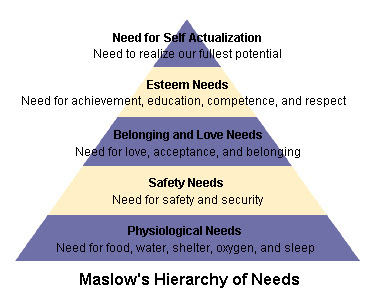1. What are the important limitations of McGregor's Theory X and Y?
Theory X
- The average of human being is inherently lazy by nature and desires to work as little as possible.
- Employees avoid accepting responsibility and prefers to be led or be directed by some other
- They are self-centered and indifferent to organizational needs.
- They are lack of creativity in solving organizational problems.
- Employees by nature resist to change of any type.
Theory X is an authoritarian style where the emphasis is on "productivity, on the concept of a fair day's work, on the evils of feather-bedding (the practice of hiring more workers than are needed to perform a given job, or to adopt work procedures which appear pointless, complex and time consuming merely to employ additional workers) and restriction of output, on rewards on performance reflects an underlying belief that management must counteract an inherent human tendency to avoid work". In the case of such employees, self-motivation is just not possible. They will work only when there is constant supervision on them. A manager has to persuade, punish or reward such workers in order to achieve organizational goals.
Theory Y
- Work is as natural as play, provided the work environment is favorable. Work may act as a source of satisfaction or punishment. They are not really against doing work.
- Self-control on the part of people is useful for achieving organizational goal. External control and threats of punishment alone do not bring out efforts towards organizational objectives.
Theory Y is a participative style of management which "assumes that people will exercise self-direction and self-control in the achievement of organizational objectives to the degree that they are committed to those objectives". It's management's main task in such a system to maximize that commitment.
Theory X
- The average of human being is inherently lazy by nature and desires to work as little as possible.
- Employees avoid accepting responsibility and prefers to be led or be directed by some other
- They are self-centered and indifferent to organizational needs.
- They are lack of creativity in solving organizational problems.
- Employees by nature resist to change of any type.
Theory X is an authoritarian style where the emphasis is on "productivity, on the concept of a fair day's work, on the evils of feather-bedding (the practice of hiring more workers than are needed to perform a given job, or to adopt work procedures which appear pointless, complex and time consuming merely to employ additional workers) and restriction of output, on rewards on performance reflects an underlying belief that management must counteract an inherent human tendency to avoid work". In the case of such employees, self-motivation is just not possible. They will work only when there is constant supervision on them. A manager has to persuade, punish or reward such workers in order to achieve organizational goals.
Theory Y
- Work is as natural as play, provided the work environment is favorable. Work may act as a source of satisfaction or punishment. They are not really against doing work.
- Self-control on the part of people is useful for achieving organizational goal. External control and threats of punishment alone do not bring out efforts towards organizational objectives.
Theory Y is a participative style of management which "assumes that people will exercise self-direction and self-control in the achievement of organizational objectives to the degree that they are committed to those objectives". It's management's main task in such a system to maximize that commitment.
2. What are the important limitations of Maslow's Hierarchy of Needs?
- In reality, people don't necessarily work one by one through these levels. They are much less structured in the way they satisfy their needs.
- Different people with different cultural backgrounds and in different situations may have different heirarchies of need.
- Some cultures appear to place social needs before any others.
- Maslow's heirarchy also has difficulty explaining cases such as the "starving artist" in which a person neglects lower needs in pursuit of higher ones.
- In reality, people don't necessarily work one by one through these levels. They are much less structured in the way they satisfy their needs.
- Different people with different cultural backgrounds and in different situations may have different heirarchies of need.
- Some cultures appear to place social needs before any others.
- Maslow's heirarchy also has difficulty explaining cases such as the "starving artist" in which a person neglects lower needs in pursuit of higher ones.

No comments:
Post a Comment